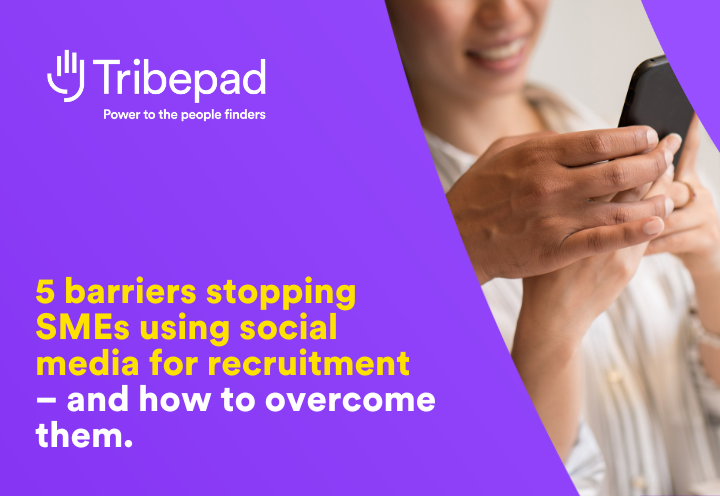Want to read our 2023 blog update?
Healthcare recruitment is on a precipice, facing profound challenges that ultimately threaten care quality and care outcomes. These challenges demand urgent transformation to escape the vicious cycle of ever-more difficult recruitment delivery, ever-increasing turnover, and ever-rising costs. It’s a rocky road – but a faster, fairer, and more cost-effective recruitment function awaits.
A few weeks ago, we dived into the six biggest challenges healthcare recruiters face:
- Candidate attraction
- Retention
- Rising costs
- Hiring manager involvement
- Black holes
- ED&I progress
We explored those challenges at the FIRM’s Health and Social Care roundtable last year – and more important, came up with some practical ways recruiters can overcome them.
Let’s go.
1 – Candidate attraction
How can healthcare recruiters attract more people into the sector?
Staff shortages are one of the biggest threats to health and social care delivery, and they’re only likely to get worse thanks to the UK’s points-based immigration system. Here are five pointers:
Tap into the unpaid carer population
1 in 8 adults in the UK are unpaid carers – and many, many more during the pandemic. That’s a huge swathe of the population that already have some understanding of delivering care, even if ‘carer’ doesn’t officially appear on their CV.
Your usual recruitment campaigns might unintentionally exclude this base of people. Could you run a campaign targeting unpaid carers for part-time opportunities that could work with their existing obligations?
Use staff ambassadors
To attract more candidates – especially those who might never have held a formal care position before – recruiters need to lift the curtain on a career in care. Using staff ambassadors is one of the most powerful ways to show what candidates can really expect, working with you.
For example, could you create a ‘day in the life’ type video with some of your current employees? Could you run an ‘ask me anything’ Q&A on social media? Could you bring a current employee into your interview process, to chat through their experiences?
Emphasise suitability not qualifications
Often candidates are put off from applying to health and social care positions because they don’t have formal qualifications. But they often don’t need formal qualifications.
There’s two parts to this:
- Proactively interrogate the job criteria, rather than acting on auto-pilot. Are you asking for qualifications just because that’s what you’ve always done? Could you train on-the-job instead?
- Evaluate how you communicate with jobseekers. Language like “qualification XYZ is preferred” can discourage applicants without qualification XYZ to bother applying. And language like “qualification ABC or equivalent” is vague. Applicants might never apply because they don’t know their experience ‘counts’ as equivalent.
Increase your social media presence
Even if candidates don’t apply through your social media, they’re almost definitely scrutinising your social media presence before deciding to apply.
Use your social media as an active jobseeking tool to amplify your reach, engage with passive candidates, and showcase your culture. If you only use social media to spray out job opportunities, you’ll typically fall into a cycle of declining engagement.
Work with schools and colleges
Staff shortages are often a pipeline problem, starting with young people who might never even consider a career in care. Building relationships with schools and colleges can help healthcare recruiters plant the seed earlier.
For example, could you hold talks in schools near you? Could you sponsor school events, to get your name out there? Could you take work experience placements or apprentices?
2 – Retention
What part can healthcare recruiters play in addressing the sector’s notoriously high turnover rates?
Turnover in healthcare can be extraordinarily high, leaving recruiters racing to fill a leaky bucket. Decreasing turnover is a wider cultural issue too – but recruiters do play an important role.
In particular:
- Look at how you qualify candidates. Are you reliably bringing the right people into the business? Poor-fit hires are much more likely to leave.
- Look at the expectations you set. If you idealise a career in care with a view to attracting more people into the industry, those people are only likely to leave once they realise the sometimes-tough realities of the job.
- Look at the continuity of experience. 24% of healthcare hires leave within their first year – onboarding plays a major role. Examine your handover from recruitment to onboarding. Is the candidate-to-hire experience joined-up?
- Look at ways to go the extra mile. Are you making candidates feel appreciated and special, or are you so busy you’re unintentionally making them feel insignificant? For example, a handwritten note on their first day is quick, easy and inexpensive but could mean a lot.
3 – Rising costs
How can healthcare recruiters build a sustainable recruitment function?
To name a few healthcare recruitment challenges: Staff shortages and high turnover increase recruitment costs by extending time-to-hire, increasing advertising spend and increasing your reliance on expensive agencies. In that context, improving applicant flow using the pointers we’ve chatted about so far will definitely help.
But applicant flow isn’t the only issue. As our Business Development Manager James Pratt points out, often the problem is slow internal processes driving up time-to-hire and losing out on good people.
Sometimes organisations pour more money into marketing and advertising when actually their problems stem from internal processes. Maybe they’ve actually got enough candidates coming in but they don’t get to them fast enough, so they lose out
Examine your internal processes – and the recruitment technology that supports them – to ensure you’re identifying and engaging with your best candidates as fast as possible. We see time and again how important speed of interaction is, or you’ll consistently lose the best people and get sent back to the drawing board.
Also consider how you hire contractors. The health and social care sector relies on more locums, temps, and contractors than ever, and that trend’s increasing. Using agencies is an outdated and extremely expensive approach compared to cloud-based contractor management tools.
4 – Hiring manager involvement
In terms of healthcare recruitment challenges, how can healthcare recruiters increase hiring manager engagement?
Hiring managers can be a major bottleneck, slowing recruitment dramatically and ultimately hurting recruitment delivery. Prioritising these relationships means building engagement and creating alignment.
In practice, that’s about educating, empowering and accountability:
- Educating – helping hiring managers understand the recruitment process and their collaborative role in it. Using real-time data to reinforce points.
- Empowering – arming hiring managers with intuitive, easy-to-use tools that make their role in recruitment simple and provide a single source of truth.
- Accountability – using comprehensive recruitment data to show the impact of individual and team actions and campaigns.
5 – Black holes
How can healthcare recruiters shine a light on their processes, to identify improvements and efficiencies?
Lack of recruitment data visibility is a huge problem, because it stops you identifying the real problems hurting recruitment delivery – so you can solve them. The solution is straightforward: better recruitment reporting.
You’ll need:
- More data. Your recruitment technology should automatically collect data on everything your team does. Arm yourself with the facts!
- Fast insights. True value comes when you slice and dice raw data to get meaningful insights. Look for reporting functionality that empowers you to run simple, fast reports addressing your biggest questions.
- Flexible configuration. How you define, say, time-to-hire mightn’t be how another recruitment team defines it. You need software that allows flexibility around definitions, unless you’re willing to adapt your processes.
- Automated reports. Reporting can be a discrete process to solve a problem – but it should also be a continuous one, to drive constant improvement. Embed reporting into your process with automated and scheduled reports.
- An intuitive interface. Empower everyone involved with recruitment to harness data more effectively with intuitive, easy-to-use dashboards, from individual recruiters looking to improve to team leaders scrutinising team performance.
6 – ED&I progress
How can healthcare recruiters build a fair and inclusive recruitment process?
Health and social care recruiters must act on ED&I, not only to protect your employer brand but to tap into more diverse talent pools.
Laura Roche, ED&I Advisor for HS2 construction joint-venture SCS JV, chatted to us recently about 12 ways she’s building a fair, inclusive process. For Laura, progress on ED&I comes from people, process and technology working together:
“We’re trying to design a process that finds the best person for the job,” she says, “rather than just relying on unconscious bias training for the recruitment team. How do you build a system that’s supporting ED&I; how do you design bias out?”.
Ultimately, that means examining your recruitment from a holistic perspective.
- Do you have the right process mechanisms to target diverse people?
- Are you tackling unconscious bias in shortlisting and interviewing?
- Does your data drill into problems and successes, so you can grow?
An urgent timeline for healthcare transformation
The global healthcare sector’s problems of escalating demand, budget pressures, and caregiver shortages existed long before COVID-19. However, the current crisis has disrupted both the nature and the timeline of industry transformation.
Left to escalate, these healthcare recruitment challenges turn into a vicious cycle that sees recruitment becoming harder and harder, with more and more people driven away from the industry as costs and time-to-hire spiral.
We need only look to reports that staffing issues contributed to COVID-19 deaths in care homes to understand – healthcare recruitment transformation isn’t just an urgent need. It’s a matter of life and death. Healthcare recruiters have long understood that – now healthcare organisations must step up with investment and support where it’s needed, to empower teams to make the needed changes.
The healthcare and social care sector faces unique recruitment challenges. Discover how to choose talent acquisition technology that’ll overcome them, in our recruitment technology buyer’s guide.




